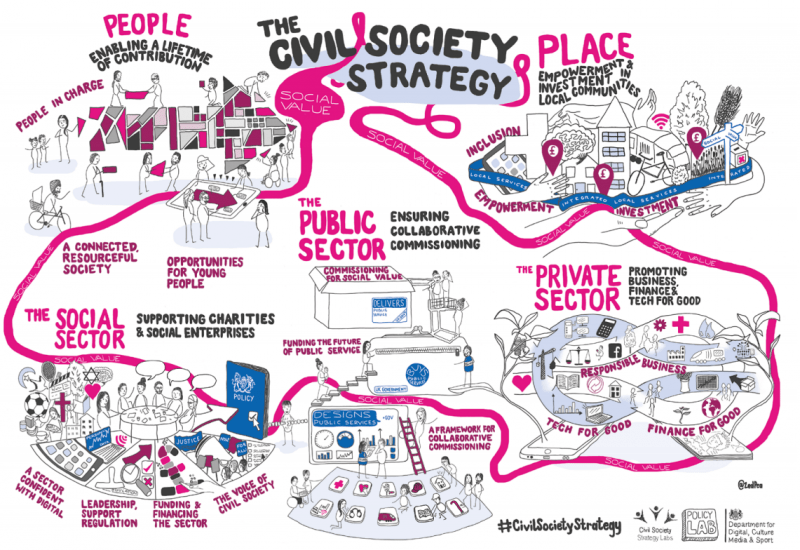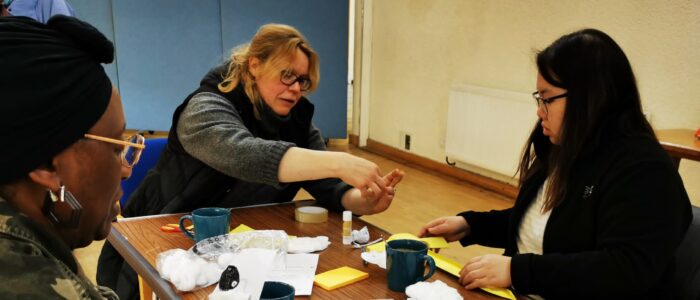Government’s Civil Society Strategy recognises vital role of faith
The role of faith groups is also essential. They play a vital part in meeting the need for greater integration and community cohesion. They are embedded within communities, well-able to recognise real local need and offer important services, particularly for marginalised and isolated groups. As with the wider social sector they speak out on important issues on behalf of those in need.

FaithAction is very pleased that the Government’s new Civil Society Strategy, launched on 9 August, so clearly recognises the contribution that faith groups are making to society. We see this as a response to our engagement with the team developing the strategy, since the initial materials we saw did not make any mention of faith.
The Government defines civil society as “individuals and organisations when they act with the primary purpose of creating social value, independent of state control”. It includes not only the voluntary, community and social enterprise sector, but also parts of the statutory and private sectors when they act for social value – that is, to enrich lives and make society fairer for everyone.
There is a clear emphasis in the strategy on the importance of community and relationships, which we welcome as these are values that many faith groups hold as crucial. We’re also pleased that the VCSE Health and Wellbeing Alliance, of which FaithAction is a member, is featured as one of the case studies that show how the voluntary sector and the people it serves can be a part of shaping policy.
The strategy also mentions some specific examples of faith-based organisations playing an important role: the engagement with faith communities by the West Midlands Combined Authority, bringing together a coalition of different faiths to explore how their resources can combat pressing social issues; the role of churches in providing volunteers for the Safe Families for Children initiative; and the role of faith groups as sponsoring organisations that help refugees integrate into local communities.
Some of the key plans set out in the strategy include:
- Supporting communities through the Place Based Social Action Programme with the Big Lottery Fund, and through training more Community Organisers
- A focus on helping young people play a part in civil society, and supporting the most disadvantaged young people
- Piloting approaches to participatory democracy – supporting people to take part in decision-making that affects their communities
- Helping communities take more ownership of local assets
- Releasing funding from dormant assets to community organisations
- A renewed commitment to Compact, a set of principles that govern the relationship between the social sector and the government
- A new cross-government group to look at effective ways of involving civil society in policy-making
- Equipping charities to make better use of data and digital technology
- A focus on building responsible businesses, and supporting collaboration between business, civil society and government departments
- Exploring how technology can be used to tackle complex social issues such as loneliness, healthy ages and online safety
- Supporting ‘collaborative commissioning’, including the spread of Citizen Commissioners – local people who make commissioning decisions on behalf of their communities
- More support for social sector organisations to form mutuals in order to deliver public services
- A revival of grant funding for community initiatives
- Increasing use of the Social Value Act by government
Find out more: https://www.gov.uk/government/publications/civil-society-strategy-building-a-future-that-works-for-everyone


